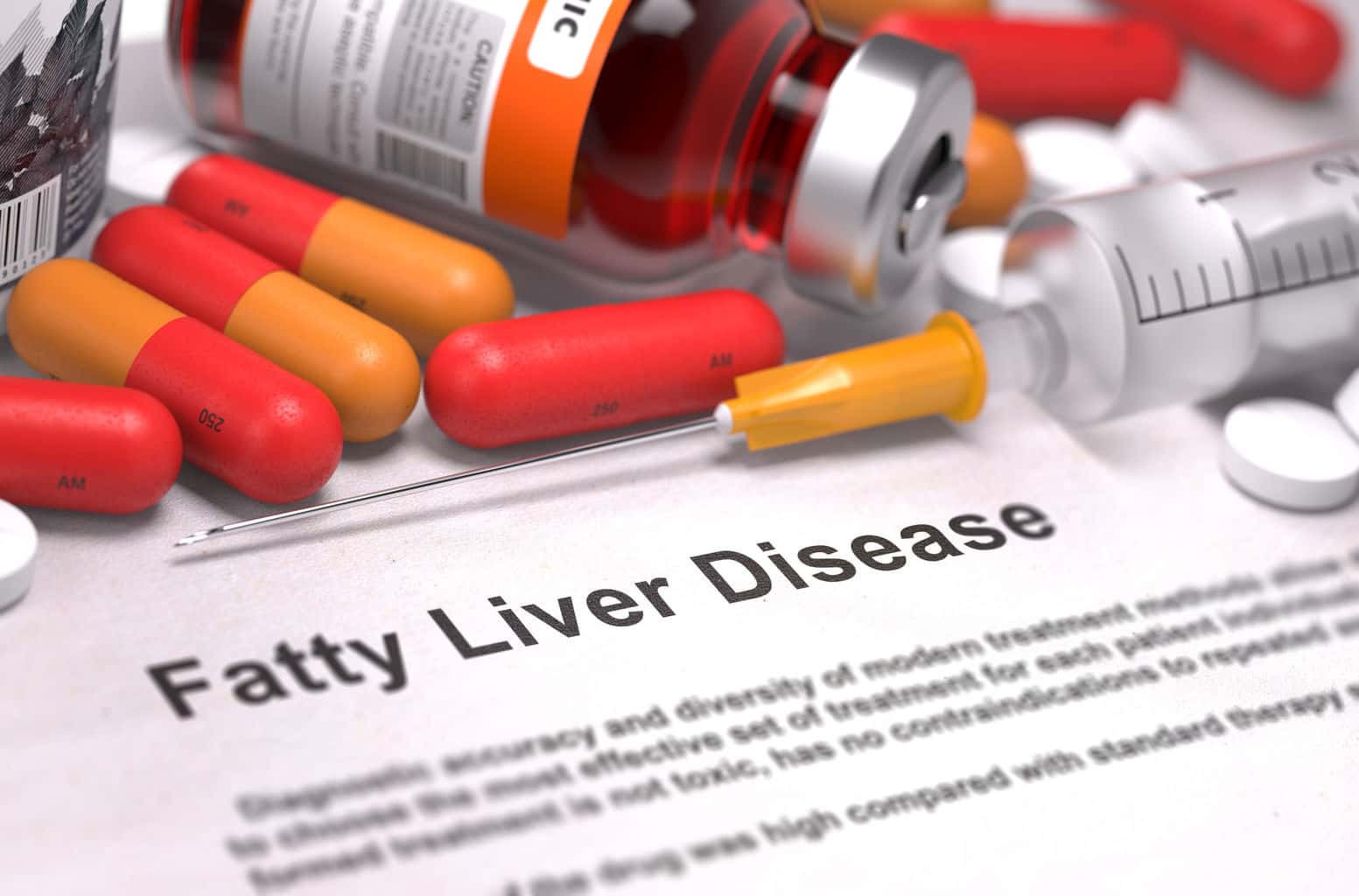
[cmamad id=”6736″ align=”center” tabid=”display-desktop” mobid=”display-desktop” stg=””]
Fatty liver disease afflicts at least 40% of men today in the Western world.
And bad fats cause diabetes and fatty liver disease — the PUFAs in vegetable oils.
A fatty liver makes it difficult to process thyroid hormone.
So you can be low in thyroid if you have fatty liver, even though your body is making enough thyroid.
The liver must process thyroid to activate it.
But with fatty liver disease, the liver isn’t up to the job.
A fatty liver also can contribute to diabetes by causing insulin resistance.
It starts in the liver and then it moves to the other tissues.
Insulin resistance is a requirement for diabetes, and long-term insulin resistance can turn into a diabetic affliction.
But what causes fatty liver disease?
And why is it so common today?
Fatty liver disease was very rare 30 or 40 years ago.
What changed?
This study sheds light on why so many men are getting fatty liver disease:

Researchers looked at tissue of patients with nonalcoholic fatty liver disease, and those without.
And they measured the makeup of the fat in the liver.
[cmamad id=”6737″ align=”center” tabid=”display-desktop” mobid=”display-desktop” stg=””]
They found that people with fatty liver disease had a lot of PUFAs.
They had very high polyunsaturated fatty acid levels in the liver compared to healthy liver people.
It is concluded that a marked enhancement in PUFAs occurs in the liver of NAFLD patients, a condition that may favor lipid synthesis over oxidation and secretion, thereby leading to steatosis.
In other words, excess PUFAs may fill the liver, and the liver doesn’t burn them for energy.
The body will often store PUFA fat instead of burning it.
That is because it is very difficult to burn PUFAs.
And the process causes tremendous free radical formation.
So the liver stores the vegetable and fish oils and the other PUFA fats — and the result is a fatty liver.
But the damage does not stop there.
Now let’s look at another result of excessive consumption of vegetable oils and fish oils.
This time in the pancreas.

Researchers in this study examined the pancreas from obese people.
They found that obese people have a pancreas is that her loaded with pancreatic fat — which is high in PUFAs.
The researchers found that these unsaturated fats were very inflammatory.
And they caused the death of cells, potentially including the beta cells that produce insulin.
But what about saturated fats?
They’re considered evil in the medical and nutrition worlds, so they must have done more damage than PUFAs, right?
Diabetes and fat, fat and diabetes — they go together, don’t they?

Well — no.
Saturated fats did not cause any problems.
Unsaturated fatty acids were pro-inflammatory, causing necrosis (CELL DEATH). Saturated fatty acids had no such effects.
A finding like this is enormously important.
As we learn more and more, we find that the body stores unsaturated fats rather burning them for energy.
These unsaturated fats wreak havoc in the body.
They cause damage to our liver, our pancreas, and probably every other organ of the body — including the brain.
——————

- Increase in long-chain polyunsaturated fatty acid n - 6/n - 3 ratio in relation to hepatic steatosis in patients with non-alcoholic fatty liver disease
https://www.ncbi.nlm.nih.gov/pubmed/14720121 - Lipotoxicity Causes Multisystem Organ Failure and Exacerbates Acute Pancreatitis in Obesity
https://www.ncbi.nlm.nih.gov/pmc/articles/PMC3321362/
- Facts about saturated fats: MedlinePlus Medical Encyclopedia
https://medlineplus.gov/ency/patientinstructions/000838.htm - The truth about fats: the good, the bad, and the in-between
https://www.health.harvard.edu/staying-healthy/the-truth-about-fats-bad-and-good

Leave a Reply